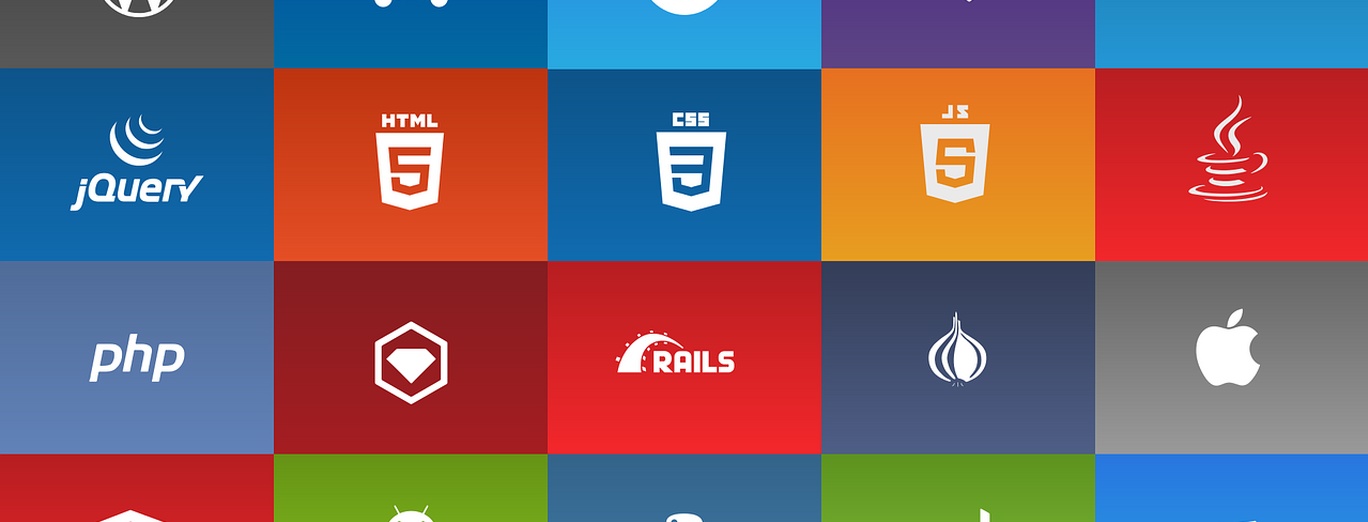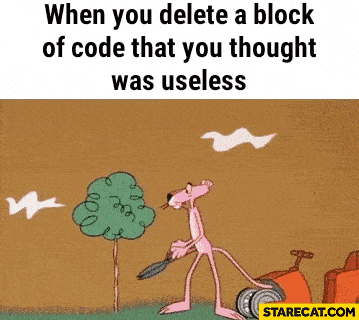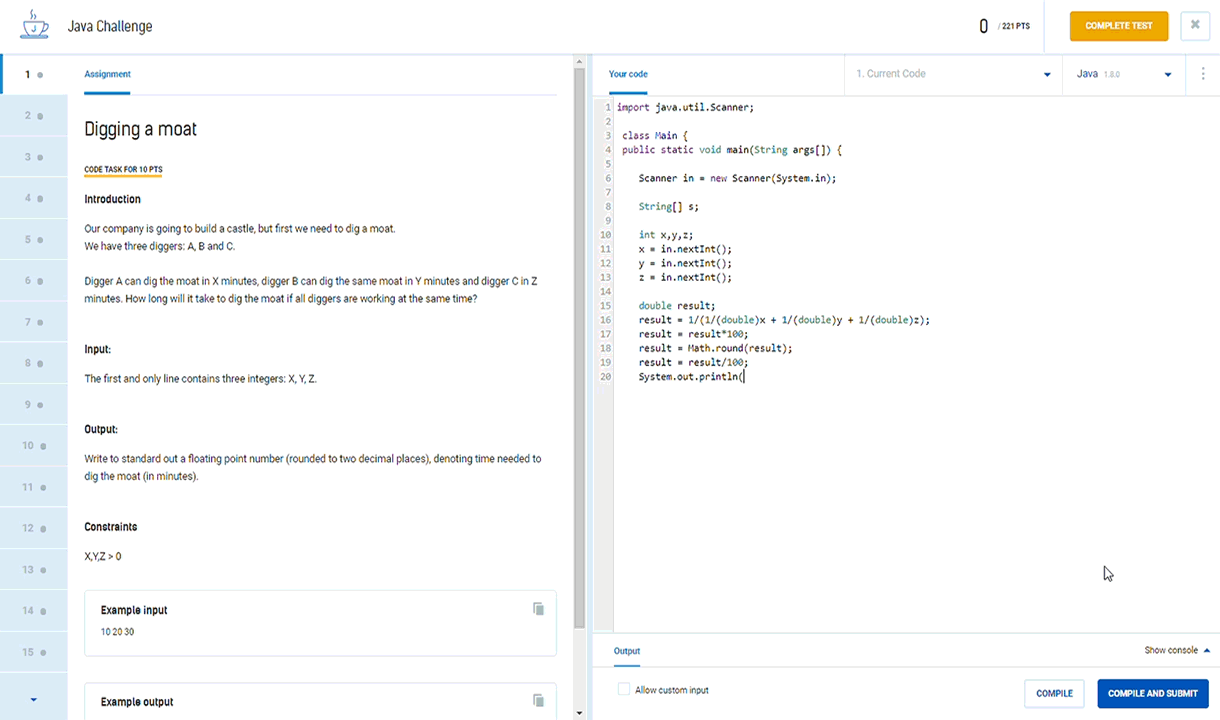Top 10 Programming Languages To Learn (And Earn) in 2019 - And Why?


You always need the right tools for the job: when coding, it is no different. The right coding language will make projects much more agreeable, as you can achieve more, work more effectively and avoid large roadblocks due to incompatibility with what you are trying to create. For a developer, knowing which languages are growing in popularity is vital, as these are the languages that will power tomorrows apps and solutions. As such, being able to code in these languages is the best way to secure better paying - and more innovative - work.
So, with that in mind, here are our predictions for the top programming languages this year! The order is based on the average annual salary of developers in each language (statistics taken from Indeed).
1. Ruby
If you’re looking for a language that’s syntax-friendly, Ruby is a great choice. It’s easy to get to grips with, making it an excellent option for developers looking to learn a new language. However, one key reason for Ruby’s popularity is that its most common framework, Ruby on Rails, continues to prove successful. GitHub, AirBnB, Hulu and Dribbble are just some of the companies that continue to utilise Ruby this way. Likewise, Ruby has a great community that continues to support it around the world. Such a passionate group will strive to use Ruby wherever it proves most beneficial, which will only help its success this year. If you want to test your skills in Ruby, try taking our Quick Ruby Test.
Average annual salary of a Ruby Developer: $123,378
Who uses Ruby?
Hulu, Github, Shopify - all built with Ruby (particularly Ruby on Rails). Ruby itself thrives on web apps and website development, so it’s a common feature in growing web agencies and app studios.

Source: Tenor.com
2. Python
As a programming language, Python is appreciated for being very user-friendly. Because it’s easy to read, it’s relatively easy to learn. Yet this doesn’t mean the language can’t be used for sophisticated, complex solutions, either. As a result, Python is a welcoming language for new programmers, as well as existing experts looking to learn a new skill. Likewise, it’s ease of use has seen it play important roles in key, emerging sectors, especially in the likes of robotics, data management and machine learning. All of this means that Python has been on a sharp rise over the last year and we fully expect this to continue. Both developers and companies appreciate using it, which is often a sure sign that it’s doing something right. If you want to test your skills in Python, try taking our Quick Python Test.
Average annual salary of a Python Developer: $122,759
Who uses Python?
It has been used in countless areas, In fact, the creator of the language, Guido Van Rossum, previously worked at Google and currently works at Dropbox: two companies that regularly seek Python specialists and are encouraging its usage. It’s also an emerging go-to language for AI. Are you interested in job offers for Python Developers? Check what open positions are waiting for you at Rockwell Automation!
3. Swift
In the last couple of years, there have been a number of languages and frameworks developed specifically for mobile platforms. Swift is one of the most popular of these. Created in 2014, it’s now one of the most popular languages, both by developers and companies looking to cater to the iOS market. App studios such as KeepSafe and Solstice are hiring more and more Swift coders to keep their latest apps as competitive and modern as possible. We believe it will grow in popularity as many are moving away from older languages, such as Objective-C, which is too inefficient for creating powerful iOS apps that make the most of the platform. Programmers want something that’s more agile and streamlined. Aside from iOS devices, it also works with Linux, which is an added bonus.
Average annual salary of a Swift Developer: $120,192
Who uses Swift?
Many companies are moving to Swift from older languages. Both Lyft and IBM now use it instead of Objective-C - the latter using it across their apps. Of course, Apple is also heavily invested in Swift, with smaller app companies following in the giants tread. They also saw fit to make Swift open source, a key point in making it one of the most popular languages on Github.
4. JavaScript
According to Stack Overflow, JavaScript was the most popular language amongst its community’s developers last year, and it has to be assumed a large part of this is due to JavaScript’s vital role in web applications and website building. Similarly, since the internet is becoming more and more integral to personal life, business applications and other areas of development, it can be safely assumed JavaScript isn’t going away anytime soon. As more and more companies look to include web features in their products and services, the need for skilled JavaScript enthusiasts will only increase. While on the topic of JavaScript, some honorable mentions should be given to both HTML and CSS. While they are very niche in their application, they are important benchmarks for web development. Think of a leading website, such as Facebook, LinkedIn and YouTube, and you can be sure the company behind is actively seeking JavaScript programmers. Do you want to test your JavaScript skills? Take our tests: Java Script Test 1 and JavaScript Test 2. If you think you've seen it all when it comes to that language, try solving the test containing weird parts of JavaScript.
Average annual salary of a JavaScript Developer: $111,827
Who uses JavaScript?
Any website you can think of likely has its frontend mostly - if not completely - in JavaScript. The same is true for any web applications or presentations. In fact, JavaScript was created at Netscape, where it is still managed by Mozilla, so it’s connections to web development has been strong from day one.

Source: Tenor.com
5. Kotlin
If Swift is our choice for native iOS development, than Kotlin is our rising star for Android. The language had strong success over the last couple of years, especially since it became an officially supported language for Android development. That said, unlike Swift, Kotlin’s use extends outside of app companies. Netflix, Uber and Trello all use Kotlin in some form to empower their products. On top of this, it is fluent with Java and even compiles into JavaScript - two of the most common options for Android - making for a very agreeable option. Kotlin doesn’t completely replace old solutions, but offer the potential to enhance them, giving developers an opportunity to appreciate a new technology at a more agreeable pace. It’s this factor that has helped boost its popularity. People are not learning Kotlin because they need to, but because they want to.
Average annual salary of a Kotlin Developer: $108,916
Who uses Kotlin?
Kotlin is growing steady support in numerous sectors. It’s used by numerous banking and financing services, such as AMP and Frollo, while other apps, like Doppledate, often use it alongside Java.
6. Rust
Rust is designed for low-level operations, so it’s often used in different areas than other entries here. However, it’s also one of the most appreciated languages, winning Stack Overflow’s popularity survey for the third year in a row. Because of coders are eager to keep using the language, it may very well become a top programming language in its own right, replacing older options, such as C and C++, that would otherwise be used for such work.
Average annual salary of a Rust Developer: $107,879
Who uses Rust?
Companies such as Montemedia and FishBrain are using Rust in their upcoming projects. It’s also has growing recognition in the gaming industry. Chucklefish created Stardew Valley in the language.
7. Java
Java has undeniably been one of the biggest winners when its comes to programming language popularity. It’s been at the top of the TIOBE index for some time, in part due to the substantial software, products and solutions already built in the language. We don’t expect this to change too much. While other languages are gaining in popularity, the amount of work already done in Java means that, whether it’s for compatibility issues or direct expansion, companies will still need Java experts moving forward. Part of the reason behind Java’s popularity is that it’s robust. Whether you’re creating web applications, mobile software or a traditional desktop solution, Java can do it; consequently, it’s great for cross-platform development. It’s why companies like Nordea Bank choose Java as much as possible - they know it will work.
Average annual salary of a Java Developer: $102,304
Who uses Java?
The real answer is, who doesn’t? Google, Facebook, Youtube… it’s hard to be online without Java.

Source: ChallengeRocket.com
8. Dart
This might seem like a wild card, but Dart is a potential option that’s growing steadily. The biggest reason for this is Flutter. Despite not having a complete, stable release yet, the Flutter SDK enables developers to cross-develop for both Android and iOS, rather than using different languages, frameworks and kits. Because Flutter - which is created by Google and empowers its upcoming Fuchsia operating system - many are already getting to grips with Dart and finding it incredibly easy to learn and get to work with. If Flutter and Fuschia have any major developments in this year, Dart’s popularity will also certainly rise as well.
Average annual salary of a Dart Developer: $97,370
Who uses Dart?
Right now, Dart can be found in various areas of Google, such as Flutter and Adwords, but also in the likes of Adobe and Netflix’s Security Monkey.
9. C
There are many variants of C, from C# to C++, but the original still seems to be the most popular. It readily ranks highly, especially in the likes of the TIOBE index. While it was developed in the 1970s, it’s still used highly today, notably as the underlying code for Linux operating systems. Similarly, while it’s lost some ground to more popular, modern languages, such as Python, its appreciated by developers building with high performance results in mind. It also has similarities with other languages, such as the previously mentioned Java, which were originally inspired by C. Because C even lies at the base of many other options, C specialists are useful everywhere. Just look to the likes of RedHat and Apple, who use C to work directly with operating systems. Because of this, it’s quite common to find a lot of skilled C programmers that have since gone on to specialise in other languages as well. However, when it comes to high-performance apps or embedded programming, many of these developers still turn to C for the best results. Do you like coding in original C or maybe you prefer its variants more? If you are a fan of C++, solve our C++ Test or take part in Rockwell Automation C++ Challenge (hurry up, it's open only until Feb, 21!)
Average annual salary of a C Developer: $96,776
Who uses C?
C can appear in some surprising places. Bloomberg uses it for their Relational Database Management System, while Google’s open source community often develop, create and share projects in C. Are you interested in job offers for C/C++ Developers? Check what open positions are waiting for you at Rockwell Automation: C++ Software Engineer and Embedded Software Engineer!
10. PHP
When it comes to popular programming languages, PHP is another such option that always remains consistently popular each and every year, primarily because it plays a key role in a vital area: web programming and server side scripting. Over 75% of all websites are said to utilise PHP in some way. It’s also used by WordPress, which has helped further its popularity as a web language, and it similarly empowers Wikipedia. Developers often use it for transferring databases or using SQL. Our argument for PHP is very much like JavaScript. As long as these languages prove popular in their respective areas, it’s very difficult for a new language to take over such popularity, due to the existing infrastructure already developed.
Average annual salary of a PHP Developer: $88,798
Who uses PHP?
PHP shines as a server-side web application language, so it’s no surprise the likes of Wordpress, Wikipedia and Yahoo turn to it for many of their needs.
Source: Tenor.com
What Makes A Language Popular
So, there you go! Our look at 10 of the most popular programming options this year - but what makes them popular? In our experience, there are options such as JavaScript and PHP - which gain ground through established support and integration - while newcomers such as Python and Dart are gaining popularity for their ease of use. An older language isn’t always a bad thing, either. Some, like C and Java, are continually supported and have existing frameworks that give developers all the tools they need to find the perfect solution.
Do you want to know how the top 10 has changed in the last two years? See which programming languages were the best paid in 2017.
